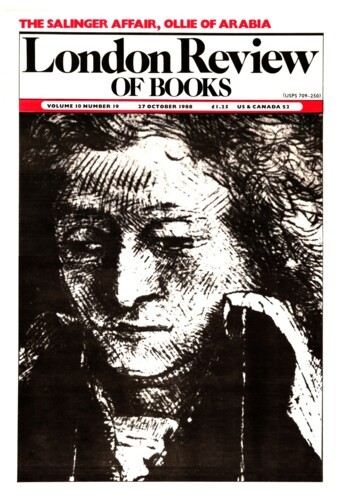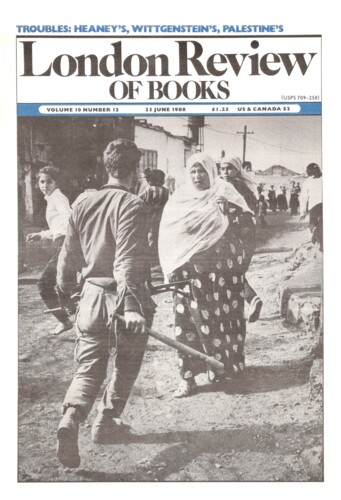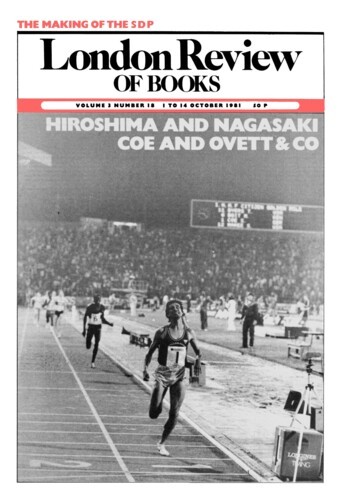Robert Fisk writes about Oliver North’s contributions to the ordeal of the Middle East
Robert Fisk, 27 October 1988
There seem to have been several Oliver Norths. There was Oliver North the Patriot, whom Robert McFarlane would describe as ‘an imaginative, aggressive, committed young officer’, Ronald Reagan’s personally approved ‘hero’. There was Oliver North the Man of God, the born-again Christian from the charismatic Episcopal Church of the Apostles who believed that the Lord had healed his wounds and who – in the words of one former associate at the National Security Council – ‘thought he was doing God’s work at the NSC.’ There was Oliver North the Man of Action, able to work 25 hours in every 24, dubbed ‘Steelhammer’ by Senator Quayle’s buddy Robert Owen, firing off memos from his state-of-the-art crisis centre in the White House.’



